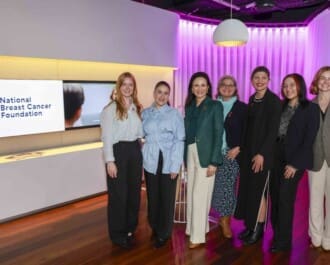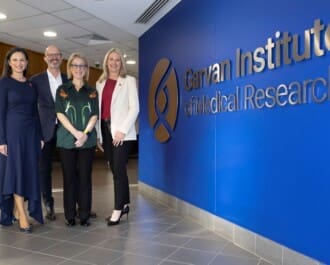
Study reveals putative preventive strategy for people at high risk of developing breast cancer.
Work out of the Walter and Eliza Hall Institute of Medical Research (WEHI) in Parkville, Victoria has identified the likely breast cancer ‘cells of origin’ in women at high risk of developing breast cancer. Furthermore, treatment with an approved drug targets these ‘cells of origin’ providing an exciting new approach to prevent the onset of breast cancer.
Women carrying faulty BRCA2 gene have an increased risk of developing breast cancer, with about 70% of carriers developing the disease in their lifetime. BRCA2 faulty gene carriers frequently undergo prophylactic mastectomy, which is avoidable if other preventive strategies were identified.
The NBCF-funded study conducted by Dr Rachel Joyce and co-led by Professor Geoffrey Lindeman and Professor Jane Visvader used breast tissue from BRCA2 mutation carriers and non-carriers and identified the potential ‘cells of origin’ that give rise to breast cancer in women with BRCA2 mutation. The researchers found high levels of rapamycin complex 1 (mTORC1), a protein that helps these ‘cells of origin’ grow into tumours. Treatment of preclinical models of breast cancer with an approved anti-cancer drug that targets mTORC1, everolimus, delayed the formation of tumours. Everolimus is approved in combination with exemestane for the treatment of people with recurrent estrogen receptor positive breast.
These findings give rise to the idea that targeting mTORC1 could be used as preventative therapy for carriers of BRCA2 gene mutation potentially avoiding unnecessary mastectomy. Prevention is one of four core objectives in NBCF’s Pink Horizon Research Strategy to get closer to our vision of Zero Deaths from breast cancer.
This research was published in the prestigious journal Nature Cell Biology.
More News Articles
View all News


